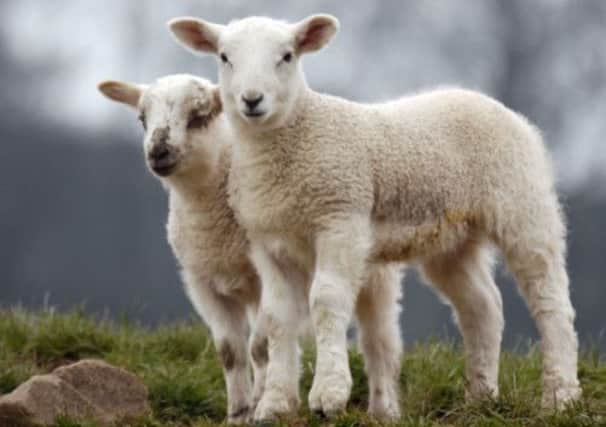Sheep research reveals harm of pre-natal stress


Pre-natal stress in human babies has been associated with disorders including depression and schizophrenia in later life. But even low levels of stress in the pre-birth period triggers potentially harmful changes in the brains of newborn babies, a team of researchers discovered.
The research involved a team of academics from Scotland, Norway, France and the United States. Although it was carried out on pregnant ewes and their offspring, the team insists the findings can be applied to humans.
Advertisement
Hide AdAdvertisement
Hide AdProfessor Cara Wellman, of the Psychological and Brain Sciences Department of Indiana University, said: “You see it across multiple species.
“It is very likely that pre- natal stresses can also produce these same brain changes in humans, which suggests that it’s going to influence cognitive and emotional processes in children.”
The study, published in the Psychoneuroendocrinology journal, involved two groups of ewes in the last six weeks of pregnancy. Half were subjected to disruption of their routine and loud noises while the others were kept in a calm environment with gentle handling.
The lambs were tested one month after birth and those whose mothers were exposed to stress showed changes in the structure of neurons in the brain regions involved in emotional regulation and cognitive processing.
Professor Adroaldo Zanella, from Scotland’s Rural College, said the neurological changes were reflected in behaviour: “Stresses on the mother are of significant importance because the template of the baby’s brain can be altered.
“This is the first ever study that has proved these negative effects occur in real-world conditions. Not only that, but the ewes in the higher stress group only ever experienced very mild stress, yet we saw these changes in the lambs’ brains.
“Lambs whose mothers received aversive handling while pregnant exhibit more fearfulness and their cognitive abilities are compromised. Right now we are working on a study that will assess how they are affected in the longer term.”
The professor said pregnant women should not worry that a single stressful episode would damage their baby. Instead it was vital that mothers-to-be are given as much opportunity to avoid stress as possible, and if exposed to traumatic or worrying environments, given support to get their physiology and stress hormones back to normal after stressful situations.
Advertisement
Hide AdAdvertisement
Hide AdLow income, lack of stable relationships, and situations in which women did not have control in their lives had all been shown to contribute to pre-natal stress, Zanella said. “Society has to do everything it can to protect pregnant women from stress to make sure their offspring at birth have the optimal responses.”
The academic said previous studies suggest that good parenting may be able to reverse pre-natal changes, and the team would now be doing further research into the long-term effects of pre-birth exposure to stress.
Children’s organisations said more needed to be done to help pregnant women avoid stress in the workplace. Clare Simpson, of family support network Parenting Across Scotland, said: “In an ideal world all women would be protected from stress throughout pregnancy. Unfortunately, life just isn’t like that.
“However, there are some things that could be done to help. Employers should exercise flexibility and ensure that mothers-to-be get the time off they need and are entitled to.”
Jackie Mitchell, national officer for Scotland for the Royal College of Midwives, said: “What is important is that there is good continuity of care for pregnant women and services should be organised in a way that supports this.”
Wellman suggested that, despite the findings, not all stress-related episodes were necessarily harmful. “There is some good evidence to suggest that you can’t generalise and say all stressors are bad,” she said. “The appropriate amount of pre-natal stress might prepare the offspring to respond to stress as an adult. Not enough might be just as harmful as too much.”